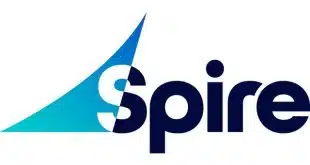The Federal Reserve Board on Thursday said it would leave its debit card interchange cap for large issuers unchanged despite finding that some of their important expenses either declined last year or had changed little from levels found by an earlier survey. A major retailer trade group said the findings show debit card issuers continue to receive more interchange than called for by the 2010 Dodd-Frank Act’s Durbin Amendment.
The Fed’s statement came in a press release announcing the latest report the central bank released about debit card expenses and income, the third in a series it is required to publish every two years by the Durbin Amendment. The Fed’s controversial rule implementing the amendment in 2011 imposed a cap of 21 cents plus 0.05% (5 basis points) of the transaction, along with a 1-cent fraud adjustment, on cards from issuers with more than $10 billion in assets.
The report examines expenses such as authorization, clearing and settlement (ACS), and fraud, along with interchange and network fees. For its latest report, which covers 2013, the Fed early this year surveyed 15 debit card networks and 131 so-called “covered” issuers—those subject to the Durbin cap, a cohort of big financial institutions with debit card portfolios of varying size. The Fed received responses from an identical number of issuers for its most recent report before today’s, which probed expenses and revenues for 2011.
“The Board does not plan to propose revisions to the … interchange fee standard or the fraud-prevention adjustment based on these survey data,” the release says. “Sixty-four percent of covered issuers had average ACS costs, including issuer fraud losses, below 21 cents plus 5 basis points of the value of a transaction … in 2013. This proportion is slightly lower than the 66% of covered issuers with average ACS costs below the maximum interchange fee in 2011.”
The Fed also said that the median issuer fraud loss was essentially unchanged from 2011 at 5 basis points, or 0.05% of the transaction.
The Fed considers about 35 financial institutions as “high-volume” issuers because their cardholders generate 100 million or more debit transactions a year. These high-volume issuers accounted for 95% of debit transactions and 94% of dollar volume in 2013, unchanged from 2011.
Some key findings from the 35-page report:
• ACS costs, excluding fraud losses, for the biggest debit issuers declined to an average of 4.4 cents per transaction from 5 cents in 2011. But the median issuer had an average ACS cost of 14.9 cents compared with 11 cents in 2011.
• Average interchange fees per transaction for debit and general-use prepaid cards have not changed materially since 2011’s fourth quarter, when Regulation II (the legal name of the Fed’s rule) took effect. In 2013, debit interchange fees totaled $16.33 billion.
• Network fees totaled $5.48 billion in 2013, up 8.3% since 2012. Merchant acquirers paid 57% of network fees; issuers paid the rest. Payments and incentives offered by networks totaled $1.25 billion in 2013, a 1.6% increase since 2012, with issuers receiving 64% of the payouts and acquirers and merchants getting 36%.
• The Fed estimates fraud losses to all parties to debit and general-use prepaid card transactions totaled $1.57 billion in 2013. Average fraud losses as a share of transaction value increased slightly from 7.8 basis points to 8.0 basis points.
The National Retail Federation, which along with some merchants and other trade groups is fighting the Fed’s interchange cap in court, noted the report says that 99% of debit transactions are processed by issuers with costs below the interchange cap. The NRF and the other litigants, who are taking their case to the Supreme Court, say the Fed, in an effort to preserve banks’ revenue streams, set the cap well above what the wording of the Durbin Amendment justified.
“This report confirms what we have always said—that the Fed set the cap far higher than both the banks’ actual costs and the ‘reasonable and proportional’ level ordered by Congress,” a spokesperson for the Washington, D.C.-based NRF tells Digital Transactions News by email.




